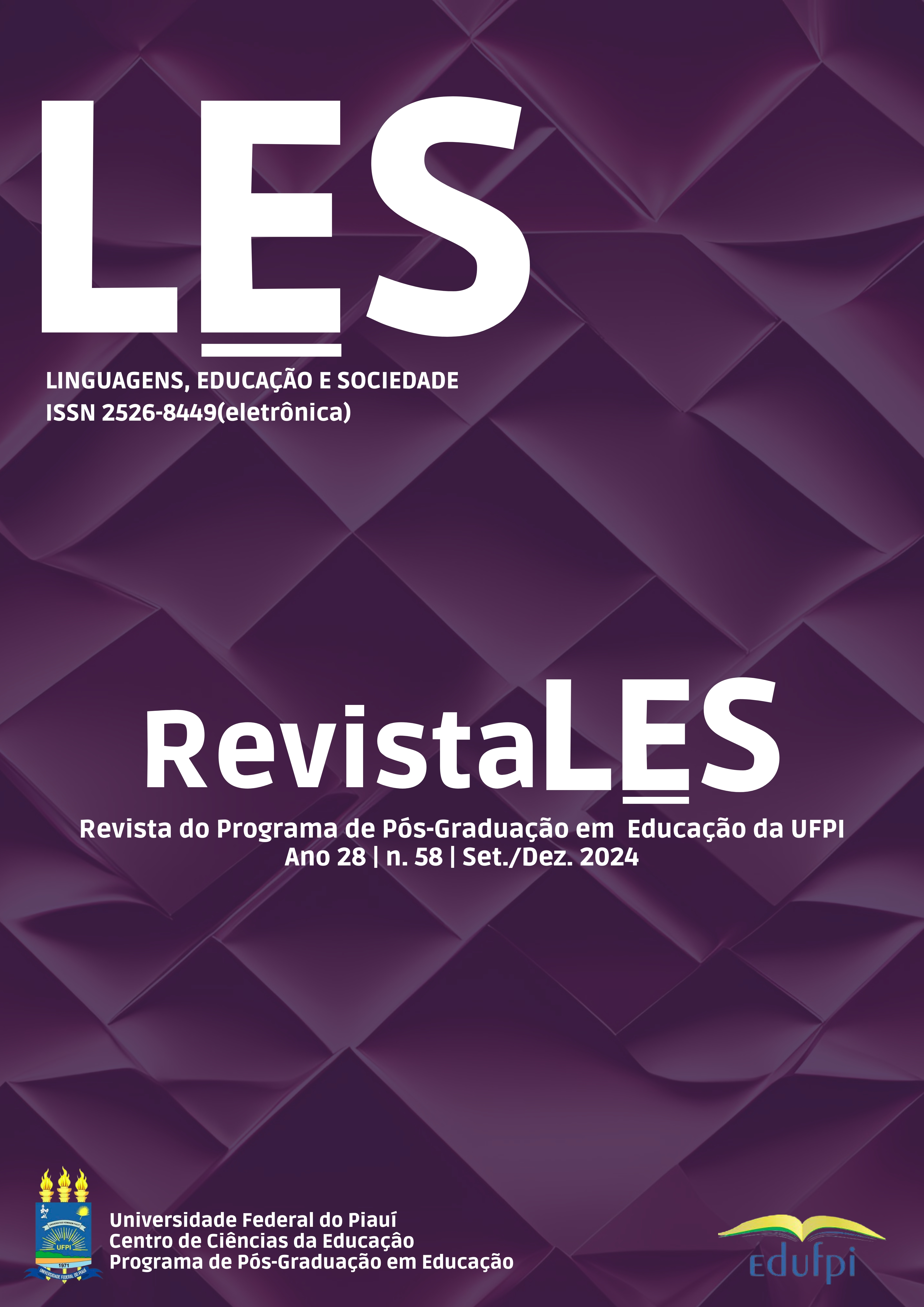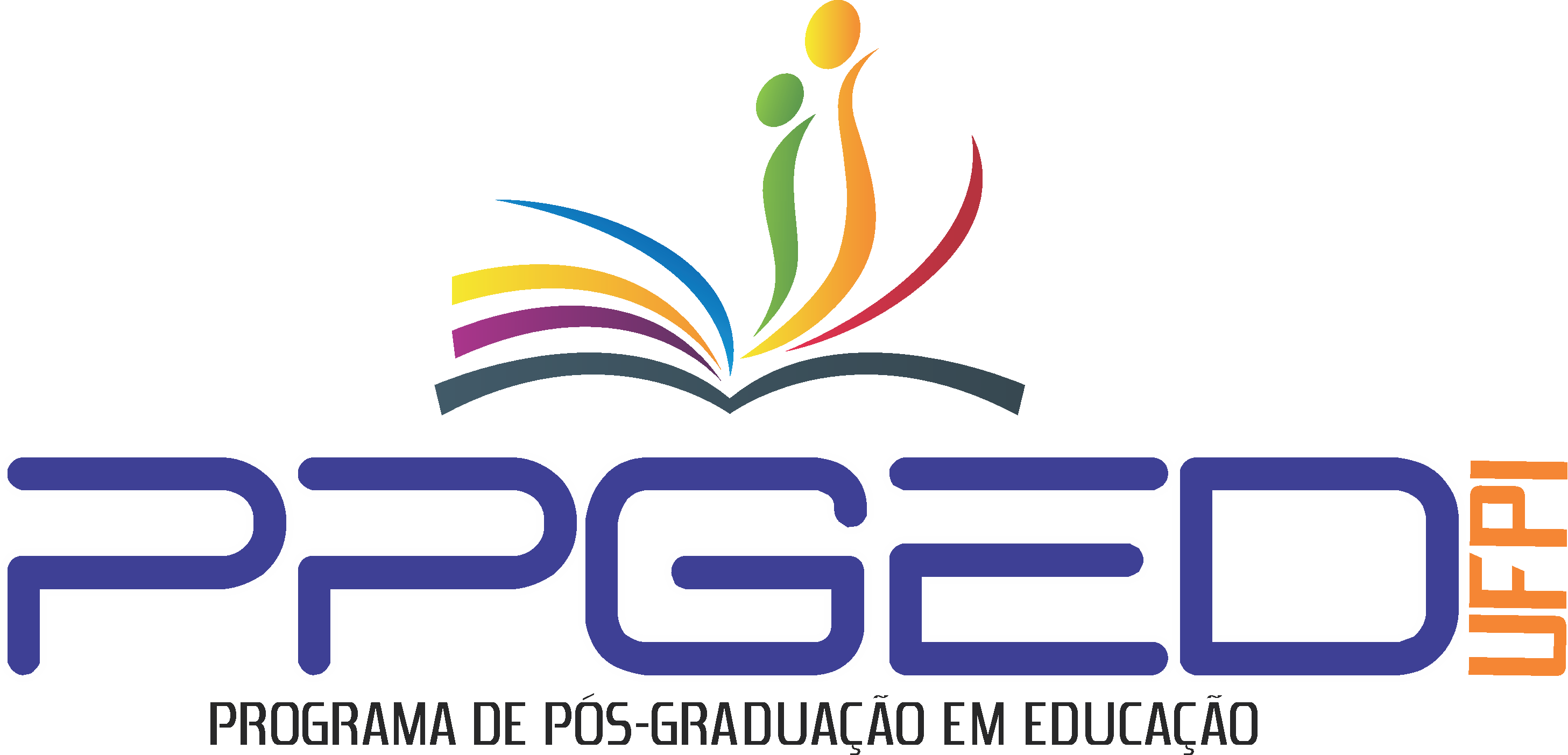PRÁTICAS DE ENSINO EM EDUCAÇÃO ESPECIAL COM FAMÍLIAS, CRIANÇAS E JOVENS NA FORMAÇÃO INICIAL DOCENTE
DOI:
https://doi.org/10.26694/rles.v28i58.4982Palavras-chave:
Educação Especial, Intervenção Educativa, MetecontigênciaResumo
Este estudo teve como objetivo geral verificar se uma proposta de intervenção educativa com famílias foi suficiente para garantir a aprendizagem de comportamentos específicos com crianças/jovens com TEA e/ou DI. O estudo teve como objetivo específico verificar se uma intervenção educativa breve com duração de sete semanas, aplicada por universitários em formação inicial, foi suficiente para modificar a percepção da família, em relação ao desenvolvimento da criança/jovem. Participaram 9 famílias, 11 crianças/jovens e 10 universitários em formação inicial. Foi utilizada uma entrevista semiestruturada com a família para derivar os objetivos de ensino que foram aplicados durante a intervenção. Foi realizada a caracterização da família, reaplicação da entrevista ao final da intervenção (a fim de comparar a percepção da família em relação ao desenvolvimento da criança e jovem) e questionário de validade social, realizado com a família, criança e jovem. Os dados mostraram satisfação dos participantes, além de comprovar a importância do estudo com práticas baseadas em evidências na formação inicial de professoras. A intervenção educativa breve, estruturada em sete semanas, modificou a percepção da família em relação ao desenvolvimento das crianças e jovens. O estudo gerou reflexão sobre a Educação Especial enquanto componente curricular na formação inicial de professoras e, mais especificamente, operacionalizou práticas de ensino com as famílias nesse contexto.
Downloads
Referências
ANDALÉCIO, A. C. G. S. A. M. et al. Efeitos de 5 anos de intervenção comportamental intensiva no desenvolvimento de uma criança com autismo. Revista Brasileira de Educação Especial, Bauru, v. 25, n. 3, p. 389-402, 2019. https://doi.org/10.1590/s1413-65382519000300003
BENITEZ, P.; DOMENICONI, C. Capacitação de agentes educacionais: proposta de desenvolvimento de estratégias inclusivas. Revista Brasileira de Educação Especial, Bauru, v. 20, n. 3, p. 371-386, 2014. https://doi.org/10.1590/S1413-65382014000300005
BRASIL. Política nacional de educação especial na perspectiva da educação inclusiva. Brasília, DF: MEC, 2008.
DECLARAÇÃO de Salamanca sobre princípios, política e práticas na área das necessidades educativas especiais, 1994. Brasília, DF: Unesco, 1998. Disponível em: https://unesdoc.unesco.org/ark:/48223/pf0000139394. Acesso em: 25 jul. 2024.
GLENN, S. S. Metacontingencies in Walden Two. Behavior Analysis and Social Action, Muncie, IN, v. 5, n. 1-2, p. 2-8, 1986. https://doi.org/10.1007/BF03406059
GLENN, S. S. Contingencies and metacontingencies: toward a synthesis of behavior analysis and cultural materialism. The Behavior Analyst, Kalamazoo, MI, v. 11, n. 2, p. 161-179, 1988. https://doi.org/10.1007/BF03392470
GUIMARÃES, M. S. S. et al. Treinamento de profissionais para implementação de ensino por tentativas discretas a crianças diagnosticadas com transtorno do espectro autista. Acta Comportamentalia, Guadalajara, v. 29, n. 2, p. 81-98, 2021. Disponível em: https://www.revistas.unam.mx/index.php/acom/article/view/79614. Acesso em: 25 jul. 2024.
HENKLAIN, M. H. O.; CARMO, J. S. Contribuições da análise do comportamento à educação: um convite ao diálogo. Cadernos de Pesquisa, São Paulo, v. 43, n. 149, p. 704-723, 2013. https://doi.org/10.1590/S0100-15742013000200016
MARTONE, R. C. Efeito de consequências externas e de mudanças na constituição do grupo sobre a distribuição dos ganhos em uma metacontingência experimental. 2008. Tese (Doutorado em Ciências do Comportamento) - Instituto de Psicologia, Universidade de Brasília, Brasília, DF, 2008.
OLIVEIRA, V. M. B.; BENITEZ, P.; PASIAN, M. S. Formação docente inicial e continuada em química na perspectiva inclusiva. REIN: Revista Educação Inclusiva, Campina Grande, v. 7, n. 2, p. 226-246, 2022. Disponível em: https://revista.uepb.edu.br/REIN/article/view/1394. Acesso em: 25 jul. 2024.
PEREIRA, C. M.; GIOIA, P. S. Formação de professores em análise do comportamento para manejo de comportamentos considerados violentos de alunos. Revista Brasileira de Terapia Comportamental e Cognitiva, Campinas, v. 12, n. 1-2, p. 121-145, 2010. https://doi.org/10.31505/rbtcc.v12i1/2.419
PINHEIRO, M. I. S.; HAASE, V. G.; DEL PRETTE, A. Pais como co-terapeutas: treinamento em habilidades sociais como recurso adicional. Psicopatologia do Desenvolvimento: Relatórios Técnicos, Belo Horizonte, ano 3, n. 1, p. 1-42, 2002.
SILVA, M. C. L.; MENDES, E. G. Formação de professores em contextos colaborativos: o desenho universal para a aprendizagem nas aulas de matemática. Com a Palavra, O Professor, Vitória da Conquista, v. 7, n. 17, p. 60-78, 2022. https://doi.org/10.23864/cpp.v7i17.768
SPARROW, S. S.; CICCHETTI, D. V.; SAULNIER, C. A. Vineland adaptive behavior scales. 3rd ed. San Antonio, TX: Pearson, 2016.
STEINBRENNER, J. R. et al. Evidence-based practices for children, youth, and young adults with autism. Chapel Hill, NC: University of North Carolina, 2020.
TORRES, J. P.; MENDES, E. G. Formação de professores de ciências exatas numa perspectiva inclusiva. Revista Insignare Scientia, Cerro Largo, v. 1, n. 3, p. 1-21, 2018. https://doi.org/10.36661/2595-4520.2018v1i3.10596













